Current Projects
Country: Tanzania
Showing 1 - 24 of 24
24 results found
To fast-track readiness and early actions to implement the post-2020 Global Biodiversity Framework by providing financial and technical support to GEF-eligible Parties to the Convention on Biological Diversity (CBD) in their work to review and align their national targets, NBSAPs, policy frameworks, monitoring frameworks and finance with the Global Biodiversity Framework
To enhance national-level institutional and technical capacities for the 2021-2022 UNCCD reporting process in the context of the UNCCD Strategic Framework 2018-2030 and SDG15.3
To strengthen integrated natural resource management and restoration of degraded landscapes for resilient socio-ecological systems in Tanzania
To assist GEF-Eligible Parties to the Cartagena Protocol on Biosafety to prepare and submit their Fourth National Reports on measures that each Party has taken to implement the Cartagena Protocol on Biosafety
To enable country Parties to collect necessary biophysical, socioeconomic data, establish sound reporting and monitoring systems at national level and report against the UNCCD Strategy
To improve natural resources management and livelihoods of communities in Lake Nyasa catchment through sustainable land management systems
To provide financial and technical support to GEF-eligible Parties to the Convention on Biological Diversity (CBD) in their work to develop high quality, data driven sixth national reports (6NR) that will improve national decision-making processes for the implementation of NBSAPs; that report on progress towards achieving the Aichi Biodiversity Targets (ABTs) and inform both the fifth Global Biodiversity Outlook (GBO5) and the Global Biodiversity Strategy of 2021 – 2030.
To increase resilience to climate change in rural communities of Tanzania by strengthening ecosystem resilience and diversifying livelihoods
To support eighteen (18) developing countries prepare and submit National Communications (NCs) and Biennial Update Reports (BURs) that comply with the UNFCCC reporting requirements while responding to national development goals
To contribute to improved health and environment through strengthening national and regional institutions, and implementing priority chemicals and waste related interventions
To reduce environmental and human health risks from PCB releases through the demonstration of a regional approach to the introduction of cost-effective and socially acceptable environmentally sound management (ESM) of PCB oils, equipment and wastes held by electrical utilities and other PCB owners in participating countries.
Development of National Action Plans to reduce the use of mercury and mercury compounds in, and the emissions and releases to the environment of mercury from, artisanal and small-scale gold mining and processing is facilitated by the use of scientific and technical knowledge and tools by national stakeholders in the United Republic of Tanzania.
To Reduce Impacts From Land-Based Sources and Activities and Sustainably Manage Critical Coastal-Riverine Ecosytems Through the Implementation of the WIO-SAP Priorities with the Support of Partnerships at National and Regional Levels
To strengthen national capabilities for implementation and scaling up of evidence-based, innovative, diversified and environmentally sound disease vector control interventions (with special emphasis on malaria) with multi-stakeholder participation within context of IVM
To Assist GEF-Eligible Parties to the Cartagena Protocol on Biosafety to prepare and make timely submission of their Third National Reports on measures that each party has taken to implement the Protocol in line with Article 33
To strengthen the capacity for implementation of the updated POPs Global Monitoring Plan (GMP) and to create the conditions for sustainable monitoring of POPs in the African Region
The project will provide financial and technical support for the preparation of National Communications (NCs) to the United Nations Framework Convention on Climate Change (UNFCCC) in 12 non-Annex I Parties that have completed preparation of their current national communications. The proposed project will seek to strengthen the information base and institutional capacity of the national institutions involved in the development of national communications in order to integrate climate change priorities into development strategies and relevant sector programs. The project will ensure that countries not covered under the current National Communications umbrella project under GEF-4 , and which seek support from UNEP will have expedited access to financial resources for their National Communications. It will also ensure continuity in the strengthening of national capacities and institutional mechanisms for the preparation of National Communications by building on previous achievements and addressing gaps.
Project Objective: With the overarching goal of integrating CBD Obligations into National Planning Processes through Enabling Activities, the main objective of this project is to enable GEF eligible LDCs and SIDs to revise the National Biodiversity Strategies and Action Plans (NBSAPs) and to develop the Fifth National Report to the CBD
To establish a working dialogue between equatorial African Governments that focuses on transboundary transport of major macronutrients in view of creating regional cooperation to advocate for changes in national and regional rural development programs
To mainstream energy efficiency (EE) measures into housing policies, building codes, and building practices in East Africa and to achieve considerable avoidance of CO2 emissions as a result of improved building practices.
To Assist GEF-Eligible Parties to the Cartagena Protocol on Biosafety in Africa to prepare and make timely submission of their Second National Reports on measures that each party has taken to implement the Protocol in line with Article 33
The Projects development objective is to accelerate the development and utilization of geothermal resources in the Rift Valley as a pathway to low carbon development in the region. The Program’s global objective is to facilitate reduction of the growth rate of GHG emissions in the region through geothermal energy development to produce electricity.
To enhance transboundary cooperation and SAP implementation through sustainable fisheries co-management, biodiversity conservation and restoration of degraded landscapes in selected key biodiversity of Lake Tanganyika.
To comply with the requirements of the transparency framework under the Paris Agreement on Climate Change
Showing 1 - 24 of 24




